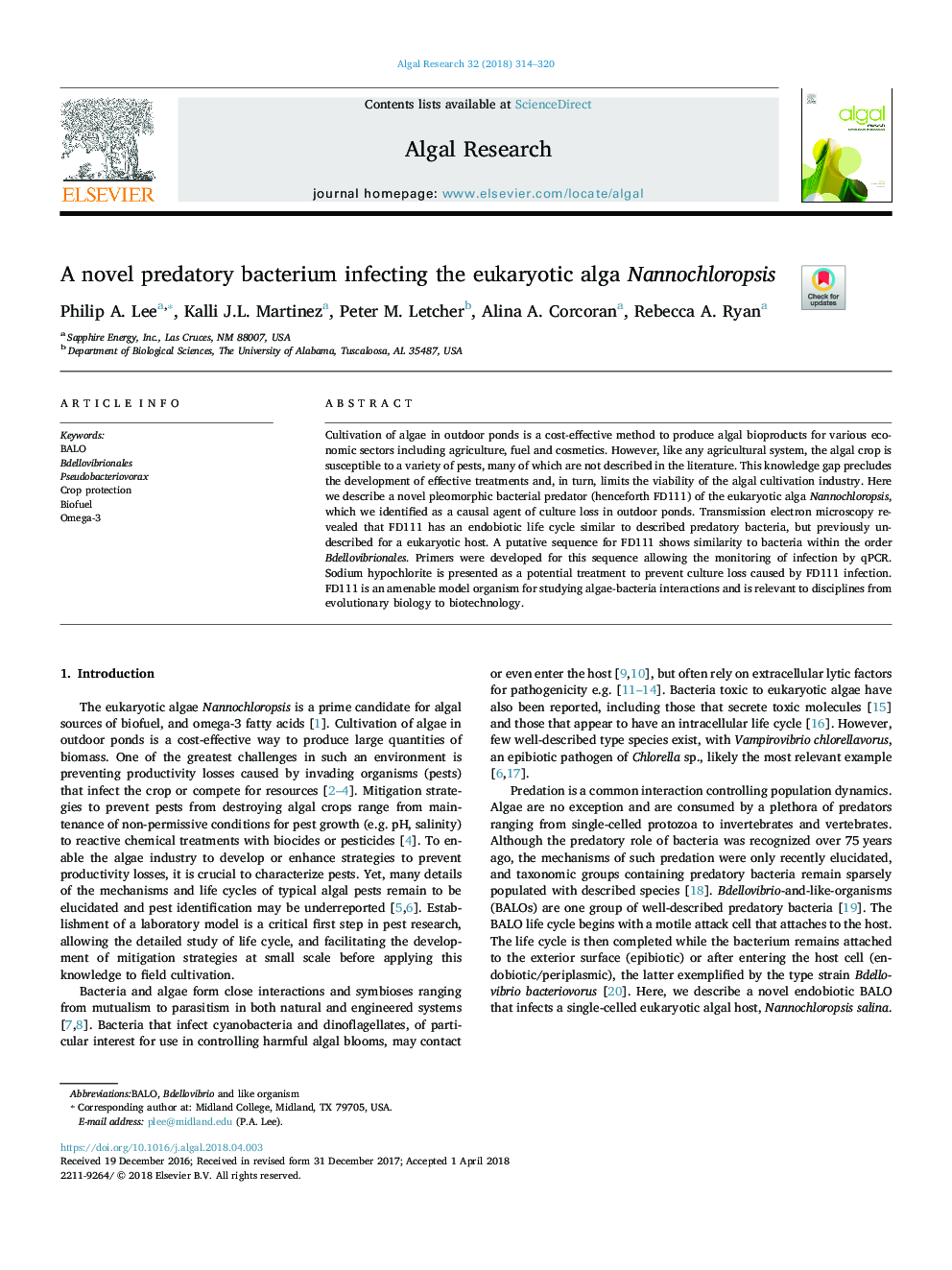| Article ID | Journal | Published Year | Pages | File Type |
|---|---|---|---|---|
| 8085820 | Algal Research | 2018 | 7 Pages |
Abstract
Cultivation of algae in outdoor ponds is a cost-effective method to produce algal bioproducts for various economic sectors including agriculture, fuel and cosmetics. However, like any agricultural system, the algal crop is susceptible to a variety of pests, many of which are not described in the literature. This knowledge gap precludes the development of effective treatments and, in turn, limits the viability of the algal cultivation industry. Here we describe a novel pleomorphic bacterial predator (henceforth FD111) of the eukaryotic alga Nannochloropsis, which we identified as a causal agent of culture loss in outdoor ponds. Transmission electron microscopy revealed that FD111 has an endobiotic life cycle similar to described predatory bacteria, but previously undescribed for a eukaryotic host. A putative sequence for FD111 shows similarity to bacteria within the order Bdellovibrionales. Primers were developed for this sequence allowing the monitoring of infection by qPCR. Sodium hypochlorite is presented as a potential treatment to prevent culture loss caused by FD111 infection. FD111 is an amenable model organism for studying algae-bacteria interactions and is relevant to disciplines from evolutionary biology to biotechnology.
Keywords
Related Topics
Physical Sciences and Engineering
Energy
Renewable Energy, Sustainability and the Environment
Authors
Philip A. Lee, Kalli J.L. Martinez, Peter M. Letcher, Alina A. Corcoran, Rebecca A. Ryan,
